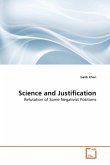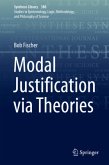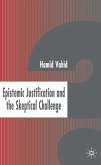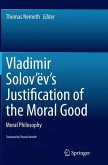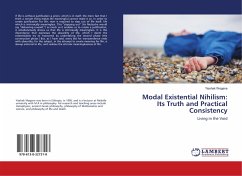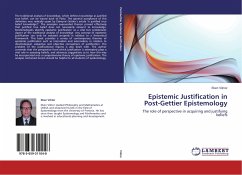A central question for moral epistemology is how our
moral beliefs
are justified. In Hugo Tristram Engelhardt, Jr. s
view, modern secular
philosophy fails to provide a justification for moral
belief. Despite
this failure, which he equates with the failure of
the Enlightenment
project, Engelhardt claims that we can peacefully
collaborate by
respecting one another''s ability to agree or give
permission. In this
book, I respond to Engelhardt''s claims by comparing
them with the
work of Alasdair MacIntyre, Harry G. Frankfurt,
Gilbert Harman,
David Lewis, and Jeffrey Stout. I argue that
justification is a process
of fitting our beliefs together to reach reflective
equilibrium. It relies
on shared conventions of thought and action that are
elements of
our culture. It doesn''t rely on a special foundation
of unimpeachable
belief, but takes account of all our relevant
beliefs. Justification isn''t
just a matter of what we think but of how we think.
When we say our
beliefs are justified, we mean that until proven
otherwise, we''ve
gathered our beliefs properly and we think we''re
right. Justification
isn''t perfect or infallible, but it''s how we form the
best beliefs we
can.
moral beliefs
are justified. In Hugo Tristram Engelhardt, Jr. s
view, modern secular
philosophy fails to provide a justification for moral
belief. Despite
this failure, which he equates with the failure of
the Enlightenment
project, Engelhardt claims that we can peacefully
collaborate by
respecting one another''s ability to agree or give
permission. In this
book, I respond to Engelhardt''s claims by comparing
them with the
work of Alasdair MacIntyre, Harry G. Frankfurt,
Gilbert Harman,
David Lewis, and Jeffrey Stout. I argue that
justification is a process
of fitting our beliefs together to reach reflective
equilibrium. It relies
on shared conventions of thought and action that are
elements of
our culture. It doesn''t rely on a special foundation
of unimpeachable
belief, but takes account of all our relevant
beliefs. Justification isn''t
just a matter of what we think but of how we think.
When we say our
beliefs are justified, we mean that until proven
otherwise, we''ve
gathered our beliefs properly and we think we''re
right. Justification
isn''t perfect or infallible, but it''s how we form the
best beliefs we
can.


